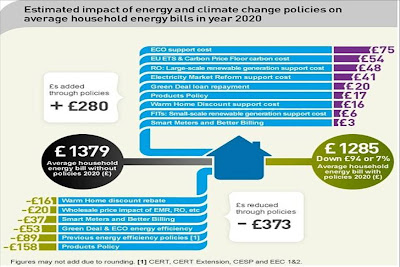Looking to expand the World Voices bloglists, I happened upon Sark. Surely there could only be one blogger there, bearing in mind that the island has a population of only around 600? I've taught in plenty of schools bigger than that. Not so. It would appear that even in this tiny community, there is tension and dissent.
Some outsiders are attracted to Sark by its strange old ways - the ban on motorised transport, and the feudal regime that existed until only a very few years ago. This has historical roots, for the Channel Islands, and Sark in particular, have a special relationship with the British Crown:
"The Channel Islands consist of two Bailiwicks, Jersey and Guernsey. The Channel Islands are Crown dependencies but they are not part of the United Kingdom nor are they colonies. When King Philippe Auguste retook possession of continental Normandy in 1204, King John retained the Channel Islands. His right as Duke of Normandy lapsed, and a separate title grew up by force of occupation, which attached to him as King of England. This was confirmed by the Treaty of Bretigny in 1360. [...]
"In 1565, acting by letters patent, Queen Elizabeth I appointed Helier de Carteret as the Seigneur of Sark (or Lord of Sark), and granted it to him as a royal fief as a reward for his having secured the island against the French. Inheritance of the fief and any land sublet by the Seigneur is by male primogeniture in the manner of the Crown. The Seigneur has always been free to sell the fief subject to royal consent. The present Seigneur is John Michael Beaumont. His family acquired the fief with Crown permission in 1852. He inherited it on the death of his grandmother Dame Sibyl Hathaway in 1974."
Source: background preamble to judgment given by the UK Supreme Court, 1 December 2009.Sark's quaint charms have caused the island to be featured in a recent human-interest BBC documentary series "Island Parish" (reviewed in a typically slantendicular Guardian way here), as well as being the setting for Mervyn Peake's magical "Mr Pye", televised hauntingly by Channel 4 in 1986 - you can see it again here.
But as the legal case quoted above makes clear, not everyone is a fan of the old ways, and thanks to the European Commission on Human Rights as interpreted by the British courts, democracy has come to this Mouse-That-Roared throwback.
Not quite enough of it, for some, as the Valentine's Day 2013 edition of the Sark Newsletter makes clear:
"For four whole years, Sark’s "democratic" government has been in place and for all that time they have, with no dissent or opposition whatsoever in parliament, been able to do whatever they wanted..."
In the interests of balance, I would add this newsletter to the WV bloglist, but it appears not to have an RSS feed at the moment, so I have added it to the collectives on the right sidebar, where it can sit glaring at the (apparently) Guernsey-based blog of "Ebenezer le Page".
For it is (I hope) safe to say that the editor-publisher of The Sark Newsletter, a property developer called Kevin Delaney, is not universally loved, especially after an article published in January last year that criticised the emergency evacuation by lifeboat to Guernsey of the Seigneur's wife following a stroke. The Newsletter suggested that a helicopter could have been used instead; apparently that is banned under Sark law, according to this piece on Wikipedia, which also says that the billionaire Barclay brothers drive cars and use a helicopter on the Sark-governed sister island Brecqhou, where they have built their castle. The resulting row was heard as far away as New York.
This petition to the Secretary of State for Justice, Lord McNally, gives reasons why the Barclay brothers and what it describes as their "lieutenant" Delaney are resented by some on Sark. It also points out (in effect) that (as perhaps we have found for ourselves on the mainland), democracy in the form of the vote is not in itself quite enough to ensure justice, since economic power (not equally available to all) has the potential to be used to influence decisions and governance, as this Wiki article implies, saying:
"On 11 December 2008, the Barclay brothers were in the news for pulling out their investments (which include hotels) from the island of Sark, causing 170 staff to be made redundant after local voters did not support candidates championed by the Barclay brothers. The brothers had previously warned that if the voters chose to bring back the 'establishment' Sark leaders that are still aligned with the feudal lord then they would pull out of Sark. The Barclays have since reopened all their businesses on Sark and some staff were re-employed."
In fairness, the piece referenced above details the tremendous achievements of the twins, rising from bankruptcy in 1960 to enormous financial success and philanthropy in their later years. But it must be very difficult for Sarkee minnows to share a pond with such large fish.
A previously-deferred BBC Panorama programme, "The Tax Haven Twins" was broadcast in mid-December 2012, fronted by confrontational journalist John Sweeney, who questioned the personal secretiveness and (perfectly legal) tax arrangements of the owners of the MP-expense-scam-busting Daily Telegraph, as well as the local tension and controversy that led to the island's doctor deciding to get "as far away as possible" from their sphere of influence.
But as a local lawyer reportedly (in that programme) said to islanders who consulted him, libel is a rich man's game, so personally I have nothing to say, except that all this has quite sucked the gilt off the gingerbread for me. I can only hope that there is reconciliation, one day.
All original material is copyright of its author. Fair use permitted. Contact via comment. Nothing here should be taken as personal advice, financial or otherwise. No liability is accepted for third-party content, whether incorporated in or linked to this blog; or for unintentional error and inaccuracy.



















